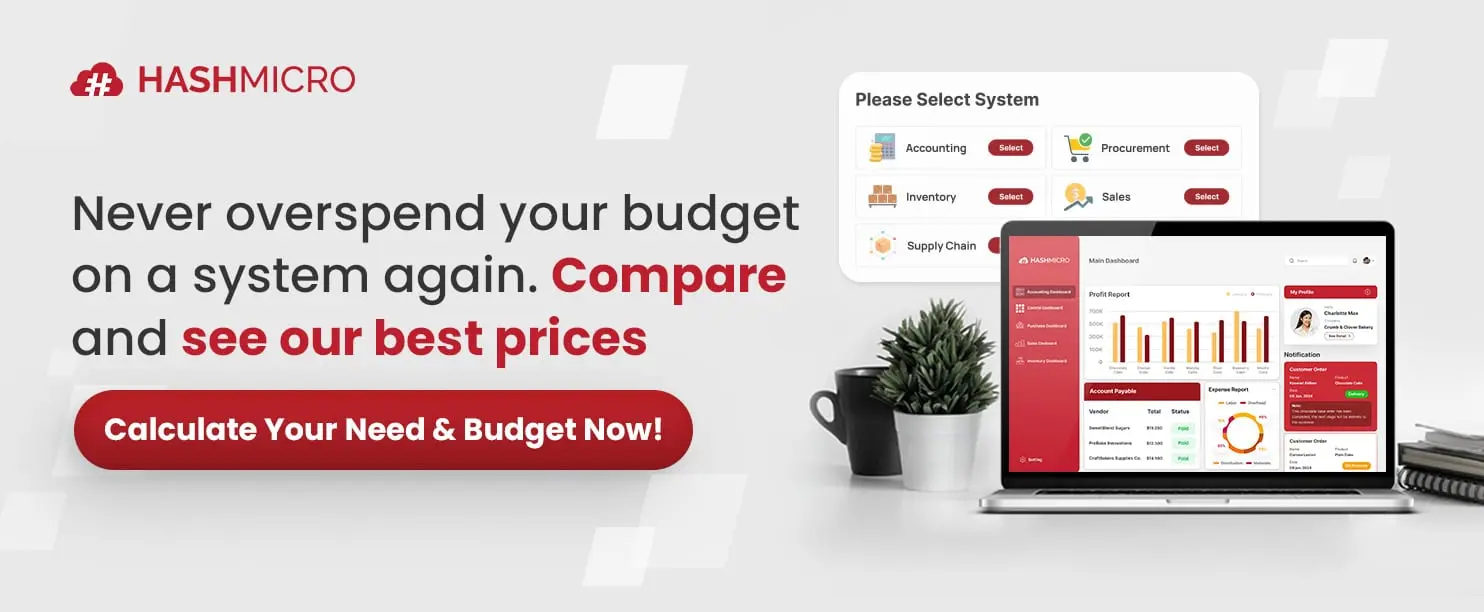ERP modules are critical components of any enterprise system, designed to streamline key business functions such as finance, HR, and supply chain management. In Malaysia, the ERP market is projected to grow by 8.76% between 2024 and 2028, reaching a value of US$1.49 billion, making smart ERP investments more important than ever.
Choosing the right ERP modules, however, can be complex. The wrong selection may lead to wasted resources and operational inefficiencies. Businesses need to match their ERP modules with specific operational goals to fully realize the value of the system.
This article will explore the top 11 ERP modules and their benefits for Malaysian businesses. From improving financial transparency to optimizing inventory management, we will provide an overview of each module’s function and its impact on business operations.
Key Takeaways
|
What are ERP Modules?
ERP modules are distinct components of an Enterprise Resource Planning system, each tailored to manage different business operations. They function by centralizing and integrating various business processes into a unified system.
How ERP Modules Help Businesses?
The benefits of ERP system modules significantly boost business operations and include:
- Cost reduction: ERP modules streamline operations and minimize the need for manual tasks, reducing operational costs. Efficiency improvements through automation also help in cutting overhead and enhancing resource management.
- Integration and automation: ERP modules integrate various business processes to reduce manual labor and minimize errors. This integration facilitates efficient data flow across departments, boosting operational efficiency and accuracy.
- Real-time visibility: ERP modules provide up-to-the-minute data from various departments, supporting timely and informed decision-making. This visibility allows managers and executives to make more strategic choices.
- Improved regulatory compliance: Modules of ERP system assist businesses in adhering to relevant industry regulations and standards with advanced tracking and automated documentation features.
- Enhanced reporting: With automated reporting capabilities, businesses can easily generate detailed reports. These reports offer critical insights into different aspects of the business, aiding in performance analysis and strategic planning.
The basic modules of ERP system form the core of an effective business management system. By utilizing the specific functionalities of each module, businesses can improve efficiency, respond better to market conditions, and drive success.
11 Most Important ERP Modules and Their Functions

Every ERP software and modul targets a specific business area, aiming to optimize overall operations. Here, we will explore the 11 most important ERP modules, describing their benefits, functionalities, and contributions to seamless business operations.
1. Accounting
Managing financial records manually is not only time-consuming but also prone to errors, which can potentially cause financial inconsistencies and regulatory non-compliance. Additionally, delayed financial reports can hinder prompt decision-making and impact business operations.
The accounting module automates key operations within the finance module, including monitoring general ledgers, managing accounts payable and receivable, executing financial consolidations, and generating comprehensive financial statements.
Key features and benefits of the accounting module:
- General ledger: Automates entries and consolidations, ensuring accuracy in financial records while saving staff time.
- Accounts payable/receivable: Streamlines billing and collections to improve cash flow and reduce late payments.
- Cash flow monitoring: Delivers real-time visibility into income and expenses, helping leaders make better financial decisions.
- Budgeting tools: Tracks planned versus actual spending, preventing overspending and keeping projects within budget.
- Compliance reporting: Simplifies audits and ensures adherence to tax and regulatory standards, reducing compliance risks.
2. Inventory management
Inefficient inventory tracking can cause problems like overstocking, where capital is stuck in unsold items, or stockouts, leading to lost sales and unhappy customers. Managing inventory in multiple locations further complicates this and raises the likelihood of errors in tracking stock levels.
The inventory management module monitors stock movements, manages reorder points, and minimizes inventory holding costs. This module supports different inventory valuation methods and offers real-time updates on inventory status, helping to avoid overstocking or stockouts.
Key features and benefits of the inventory management module:
- Stock tracking: Provides accurate records of items, reducing losses from misplaced or miscounted stock.
- Reorder alerts: Automates replenishment reminders to prevent costly stockouts and supply delays.
- Multi-location control: Gives visibility across warehouses, simplifying stock transfers and coordination.
- Valuation methods: Allows FIFO, LIFO, or weighted average costing for more accurate financial reporting.
- Real-time updates: Keeps sales and procurement aligned, improving customer satisfaction and planning.
3. Customer relationship management
Businesses often suffer from fragmented customer data, inconsistent customer service, and ineffective marketing strategies. These issues can lead to customer dissatisfaction, decreased customer loyalty, and revenue loss.
The Customer Relationship Management (CRM) module integrates sales, marketing, and customer support functions into a single system. Features like sales force automation, customer support ticketing, and digital marketing tools enable personalized communication and service.
Key features and benefits of the CRM module:
- Sales automation: Reduces repetitive tasks so sales teams can focus on closing deals.
- Customer database: Stores interaction history, enabling consistent and personalized service.
- Support ticketing: Tracks customer issues, ensuring faster resolutions and higher satisfaction.
- Marketing tools: Supports campaigns that target the right audience for higher ROI.
- Interaction tracking: Monitors touchpoints to improve retention and customer loyalty.
Companies that require deeper customer engagement can also integrate their ERP system with membership software, helping them manage memberships, rewards, and recurring subscriptions more effectively.
4. Human resource management
HR activities like recruiting, managing employee records, and complying with labor laws are often done manually, which can cause inefficiencies and errors. The absence of automated tools for performance management and employee engagement can reduce workforce productivity.
The Human Resource Management (HRM) module offers extensive tools to handle all aspects of HR functions, such as recruitment, onboarding, payroll, managing benefits, performance evaluations, and employee development.
Key features and benefits of the HRM module:
- Recruitment tools: Simplify hiring by posting jobs, screening candidates, and tracking applicants.
- Onboarding systems: Standardize processes to help new employees become productive faster.
- Payroll automation: Reduces payroll errors and ensures timely, compliant salary disbursement.
- Performance tracking: Provides data-driven appraisals to motivate staff and boost performance.
- Benefits management: Centralizes benefits and leave requests, improving employee experience.
5. Procurement
Conventional procurement processes often struggle from inefficiencies, such as slow manual approvals and inadequate tracking of vendor performance. These issues can cause disruptions in the supply chain and lead to higher purchasing costs.
The procurement module streamlines the complexities of purchasing activities. It automates various tasks, including vendor selection, contract management, purchase order processing, and payment scheduling.
Key features and benefits of the procurement module:
- Vendor management: Tracks supplier performance, helping companies negotiate better contracts.
- Contract tracking: Reduces compliance risks by monitoring obligations and expiry dates.
- Purchase orders: Automates request-to-pay workflows, speeding up procurement cycles.
- Payment scheduling: Aligns payments with cash flow to avoid late fees and improve planning.
- Spend analysis: Provides insights to cut costs and identify savings opportunities.
6. Project management
Project delays and cost overruns often occur because of inadequate project planning, insufficient resource allocation, and the absence of real-time project monitoring. These problems can endanger project success and affect the business’s capability to satisfy client expectations.
The project management module, one of the essential ERP modules for construction companies, helps manage complex projects. It includes tools for scheduling, resource allocation, budget management, and risk evaluation.
Key features and benefits of the project management module:
- Scheduling tools: Map out tasks and deadlines, reducing risks of missed milestones.
- Resource allocation: Optimizes staff and materials to avoid underuse or overwork.
- Budget tracking: Monitors expenses in real time, preventing costly overruns.
- Risk management: Identifies issues early to reduce their impact on delivery.
- Progress monitoring: Gives managers visibility for better control and accountability.

7. Sales management
Sales teams often face issues like disorganized lead management, inconsistent follow-ups, and unclear views of the sales pipeline. Additionally, the absence of a centralized data system can cause scattered customer interactions and a lack of insights into sales trends.
The sales management module streamlines and improves the sales process, from generating leads to closing deals and handling customer accounts. The system also automates tasks like order processing, tracking customers, and monitoring performance.
Key features and benefits of the sales management module:
- Lead management: Tracks prospects effectively, increasing conversion opportunities.
- Pipeline tracking: Gives clear visibility of deals in progress for accurate forecasting.
- Order processing: Automates approvals and reduces delays, improving customer service.
- Account management: Consolidates client history for better relationship building.
- Performance dashboards: Shows KPIs that help teams focus on high-impact activities.
8. Warehouse management
Common issues in warehouse management include inaccurate inventory data, ineffective layouts that slow down picking times, and difficulties in managing returns. These issues can increase operational costs and impact customer satisfaction.
The warehouse module assists in managing operations from the receipt of goods to storage and shipment. Important features include organizing bin locations, zone picking, and effective material handling methods that reduce errors and boost productivity.
Key features and benefits of the warehouse management module:
- Bin location tracking: Organizes stock storage, reducing picking errors and time.
- Zone picking: Increases efficiency by directing workers to specific areas.
- Returns management: Improves customer experience by simplifying reverse logistics.
- Material handling: Reduces damage and labor costs with optimized workflows.
- Shipping tools: Streamlines dispatching to ensure timely deliveries.
9. Supply chain management
Issues in supply chain management include unpredictable demand changes, inefficiencies in inventory and transport management, and weak collaboration among stakeholders. These issues can drive up costs and diminish the ability to adapt to market changes.
The supply chain management module offers a complete solution for handling the full range of supply chain activities. It covers managing suppliers and vendors, predicting demand, planning procurement, and managing transportation.
Key features and benefits of the supply chain management module:
- Supplier management: Builds stronger partnerships for more reliable sourcing.
- Demand forecasting: Uses data to balance supply with customer demand.
- Procurement planning: Coordinates buying cycles to minimize delays.
- Transport tracking: Improves logistics by monitoring shipments in real time.
- Collaboration tools: Strengthens visibility and cooperation across stakeholders.
10. Manufacturing
Manufacturers frequently face challenges like excessive machine downtime, underused resources, and quality control problems, all of which can significantly increase production costs and the quality of products.
Manufacturing ERP modules assist businesses with the entire production process, from planning and scheduling to execution and analysis. It aids in managing product design, production planning, shop floor operations, and quality control.
Key features and benefits of the manufacturing module:
- Production planning: Balances workloads to maximize resource usage.
- Shop floor control: Tracks real-time operations to improve productivity.
- Quality management: Identifies defects early, lowering rework and waste.
- Maintenance tracking: Schedules repairs to reduce costly machine downtime.
- Product design tools: Helps innovate and bring products to market faster.
11. Engineering
ERP modules for engineering are designed to streamline key processes such as project management, resource planning, procurement, and inventory management. These modules help engineering firms improve efficiency, ensure better collaboration, and provide real-time data for informed decision-making throughout the project lifecycle.
Key features and benefits of the engineering module:
- Resource planning: Aligns workforce and equipment with project needs.
- Procurement tools: Improves sourcing and controls material costs.
- Project tracking: Monitors progress to keep delivery on time and on budget.
- Collaboration tools: Enhances teamwork across technical and business units.
- Real-time reporting: Provides actionable insights for smarter decision-making.
To make it easier to compare their roles, here’s a summary table outlining what each of the 11 ERP modules does and how they support business operations.
| ERP Module | What It Does |
|---|---|
| Accounting | Manages ledgers, budgets, cash flow, and compliance reporting to ensure financial accuracy. |
| Inventory management | Tracks stock levels, automates reorders, and prevents overstocking or shortages. |
| Customer relationship management | Centralizes customer data, improves service, and supports sales and marketing. |
| Human resource management | Handles recruitment, payroll, performance, and benefits to streamline HR tasks. |
| Procurement | Automates vendor selection, purchase orders, and contract tracking. |
| Project management | Plans schedules, allocates resources, tracks budgets, and monitors progress. |
| Sales management | Organizes leads, automates orders, and improves pipeline visibility. |
| Warehouse management | Manages goods storage, picking, returns, and shipping for accurate fulfillment. |
| Supply chain management | Coordinates suppliers, forecasting, procurement, and logistics. |
| Manufacturing | Supports production planning, shop floor control, quality, and maintenance. |
| Engineering | Aligns resources, procurement, and reporting to improve project efficiency. |
How to Choose the Right ERP Modules for Your Business

Choosing the appropriate ERP modules for your company is a crucial decision that can greatly enhance operational efficiency. Here’s a strategic approach for choosing ERP system modules to achieve the best outcomes:
- Identify your business requirements: Examine each department’s processes and challenges to pinpoint areas needing enhancement. This assessment will guide the prioritization of necessary modules.
- Assess features and functionality: Examine each ERP module’s specific functionalities to confirm alignment with your business needs. Prioritize modules that are scalable and adaptable to future changes.
- Check integration capabilities: Choose modules that can be integrated with existing and external systems. Seamless integration ensures efficient data exchange and communication throughout the organization.
- Seek flexibility and customization: Choose ERP modules that allow customization to meet the changing demands and processes of your business, ensuring they remain useful and relevant over time.
- Evaluate vendor support and training: Make sure the ERP vendor offers extensive support and training, which are essential for successful implementation and ongoing usage and thereby reduce potential disruptions.
By carefully assessing these steps, businesses can choose ERP modules that optimally suit their requirements. This can lead to streamlined processes and enhanced strategic decision-making, and properly selected ERP functionalities can elevate operational effectiveness.
Conclusion
Choosing the right ERP modules is key to maximizing operational efficiency in your business. The right ERP system modules can simplify workflows, boost efficiency, and improve decision-making across various departments.
HashMicro ERP Software delivers a comprehensive system tailored to meet the varied demands of Malaysian businesses. It offers a scalable and integrated solution that addresses all critical business functions, including financial, supply chain, and human resources.
Explore how HashMicro ERP solutions can streamline your operations and drive growth and let HashMicro be your partner in achieving operational excellence and success. Try the free demo now!
FAQ about ERP Modules
-
What does ERP mean?
Enterprise Resource Planning (ERP) is software that helps manage a business, automating tasks and processes in areas such as finance, HR, manufacturing, supply chain, services, and procurement.
-
How do ERP systems work?
ERP systems have modules for specific business processes, such as accounting, manufacturing, and CRM. These modules use a central database, providing real-time data access and insights into business performance while reducing data duplication.
-
What are the three common types of ERP?
The three main types of ERP are on-premises, cloud-based, and hybrid. On-premises ERP runs on a company’s own servers, while cloud-based ERP operates on remote servers managed by a third party

























